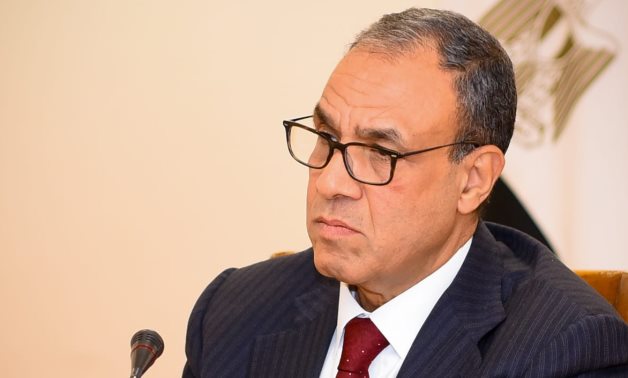In a flurry of high-level diplomatic exchanges, Egypt’s Foreign Minister Sameh Shoukry held separate discussions with his Palestinian, Tunisian, and Czech counterparts on Monday to address the rapidly escalating tensions in the Middle East, as the region braces for potential spillover from the Iran-Israel confrontation.
According to the Egyptian Ministry of Foreign Affairs, the talks focused on the urgent need to contain the crisis and prevent a broader regional conflict. Shoukry emphasized Egypt’s position in favor of de-escalation, dialogue, and the protection of civilian lives, while also reiterating the importance of international engagement to defuse the situation.
In his call with Palestinian Foreign Minister Riyad al-Maliki, Shoukry expressed Egypt’s continued support for the Palestinian people and concern over the implications that a wider conflict could have on the occupied territories. Both sides agreed on the need for coordinated Arab efforts to prevent further instability.
During a separate conversation with Tunisian Foreign Minister Nabil Ammar, the two ministers underscored the importance of unified North African and Arab positions in urging all parties to exercise restraint. Tunisia and Egypt, both members of the Arab League, are expected to support joint regional initiatives aimed at mediation.
In a discussion with Czech Foreign Minister Jan Lipavský, Shoukry also highlighted Egypt’s commitment to international law and multilateral diplomacy. The Czech Republic, a member of the European Union, expressed concern about the security implications for Europe and affirmed its support for Egypt’s role as a regional mediator.
“Egypt remains fully engaged in efforts to prevent further deterioration in the region,” the Foreign Ministry said in a statement. “We are in active contact with regional and international partners to coordinate responses and promote stability.”
These diplomatic efforts follow Egypt’s decision to establish a national crisis committee to monitor and manage the repercussions of the Iran-Israel military escalation. Cairo has also been in contact with United Nations officials and is reportedly considering hosting emergency talks in the coming days.
Analysts say Egypt’s outreach reflects its long-standing role as a key diplomatic actor in the Middle East and its concern that further escalation could disrupt energy markets, increase refugee flows, and threaten border security.
“Egypt is trying to get ahead of events,” said Hossam Zaki, a regional affairs commentator. “It’s sending a clear message: Cairo will not be a passive observer in this crisis.”
